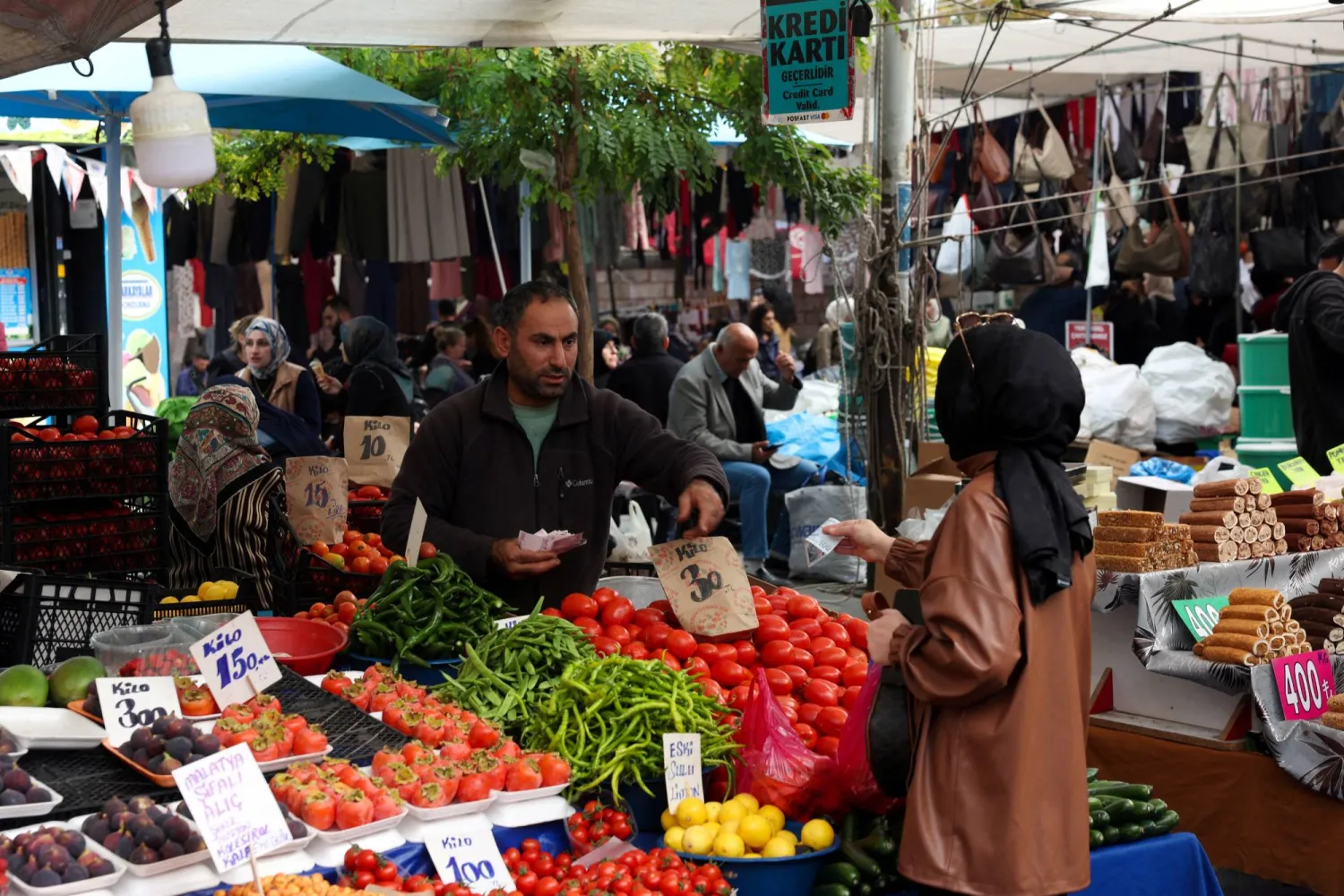The world’s future lies within the “energy mix” concept, but oil will remain a primary energy source for decades to come, said Parviz Shahbazov, Azerbaijan’s energy minister.
According to Shahbazov, efforts spent by the Organization of the Petroleum Exporting Countries (OPEC) and its allies have helped reinforce and regulate global energy markets.
In an interview with Asharq Al-Awsat, Shahbazov reaffirmed that Azerbaijan intends on strengthening strategic cooperation with the Kingdom of Saudi Arabia so that it spans several economic fields and boosts economic collaboration between the two countries, especially in the energy field.
Shahbazov noted that Saudi Arabia and Azerbaijan would be partaking in a number of cooperation projects involving renewable energy.
Joint Projects
“We have signed an agreement with Saudi Arabia’s ACWA Power to lay the foundations for the construction of a 240-megawatt wind park,” Shahbazov told Asharq Al-Awsat, adding that the power station’s tremendous capacity is essential not only for renewable energy sources in Azerbaijan but all countries in the region.
Baku, Azerbaijan’s capital, is also eyeing cooperation with Riyadh in the field of gas.
“We have a desire to cooperate in the gas sector and gas power generation, which will certainly be one of the channels for expansion of cooperation between the two countries soon,” said Shahbazov.
The minister moved on to reveal that Azerbaijan is expecting the arrival of a Saudi delegation this month, a visit that will give a chance to discuss new opportunities for expanding economic cooperation between Baku and Riyadh.
“We expect a Saudi delegation to visit this month to celebrate together the launch of a 240-megawatt wind power plant. We look forward to soon discussing ways for expanding economic cooperation with the visiting Saudi delegation,” said Shahbazov.
Saudi Arabia and Azerbaijan have previously signed various trade, diplomatic and political agreements that Shahbazov said needed more robust activation through additional talks and consultations.
Market Stability
The minister explained that Saudi-Azerbaijani cooperation in the oil and gas sector is vital for the stability of global oil and gas markets.
Moreover, the minister acknowledged Saudi Arabia’s decades-old role in strengthening the global market balance and stabilizing energy prices.
Saudi Arabia has always undertaken leadership initiatives, he noted, adding that Azerbaijan had joined the OPEC+ group, which is one of the most critical channels for stabilizing the global energy market.
“Currently, we see in this formula one of the most important tools for enhancing stability and achieving balance in the global energy market,” said Shahbazov.
“It can address developments in a more appropriate way for the market in the future.”
For Shahbazov, oil will remain the primary energy source for several years to come. Therefore, the role played by OPEC+ in market stability will stay vital for the future of energy.
What is more important than stabilizing prices is ensuring the sustainability of the world’s power supply. Energy prices can change over time, but it will not have the same effect as a shift in global energy supplies.
“For that reason, it is fair to appreciate the efforts of OPEC+,” said Shahbazov.
Regarding gas supplies, he asked an urgent question: Why are there high gas prices in Europe at a time there is a shortage in supplies?
“Despite the existence of strategies to treat the product, it did not prevent the emergence of a price and gas crisis,” noted the minister, adding that the crisis will likely perpetuate into the future, especially during winter.
“However, this situation does not include other countries in the world, as this crisis situation does not apply to the oil sector,” said Shahbazov, praising the efforts spent by OPEC+ to draw an effective roadmap for containing the global energy and oil market.
Pandemic’s Challenging Aftermath
Shahbazov stressed that the coronavirus pandemic had produced a real crisis in global energy markets.
The crisis has highlighted the need for greater cooperation among all parties benefiting from oil production and consumption.
Besides having created a very critical and challenging situation for all actors in energy markets, the pandemic shed light on the massive need for a joint mechanism between OPEC and non-OPEC members. For the time being, OPEC+ is facing this challenging situation and trying to find solutions to contain the crisis.
Shahbazov affirmed that more crises would take place in the future if the mechanism for cooperation remains absent.
“This calls for using our experiences in dealing with such situations to address the urgent issues facing the work of the (OPEC +) mechanisms in global energy markets,” he said.
“In general, we began to cooperate and work with each other and we were able to achieve a form of sustainability for oil supplies,” he noted.
“We were able to launch a program to increase energy production supplies in global markets step by step and month by month, and this program will continue with us until the end of this year and the whole of 2022,” shared the minister.
Saudi Arabia’s Green Initiatives
New energy sources are certainly a factor of prosperity and development for the region, remarked Shahbazov, adding that renewable energy addresses a major global problem: climate change.
In Shahbazov’s opinion, promoting technological discoveries that address climate change by reducing carbon emissions, sustaining food stocks, and establishing environmentally friendly transportation is of paramount importance.
According to the minister, this is what the Saudi Green Initiative cares about and is working on translating on the ground.
“This initiative (Saudi Green Initiative) pushes the world towards much-needed cooperation for a quality of life without climate or environmental disasters,” said Shahbazov.









